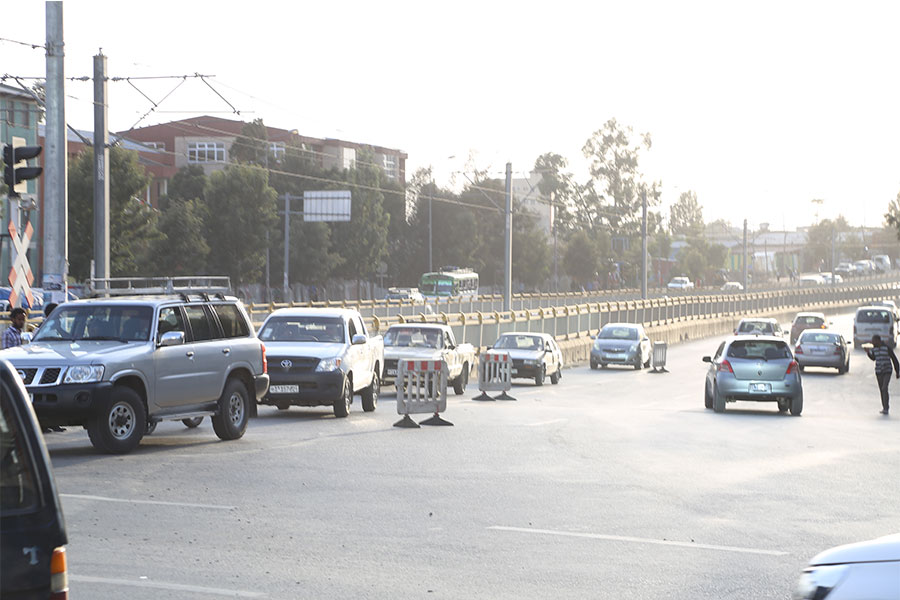
A theatre show was staged by a foreign community school not long before the COVID-19 pandemic was to disrupt nearly every part of our daily lives. The performing actors were the school’s teachers. It was not only a manifestation of the staged show’s ability to bring the school community closer but also evidence of the hard work that sometimes goes into small productions that nonetheless have a great deal of meaning for those involved. However, it left me with regrets about what some of us have missed in schools.
I never had a chance to take part in any form of performance art while I was in school. Yet an Ethiopian National Theatre employee moved next door and became a good neighbour to my parents. He worked on the design and preparation of stage props. He had exciting stories to tell us about the work that brings the stage to life and the famous actors of the time that took part in plays.
He also brought tickets to shows every time a new one was staged. It was a rare moment of family entertainment at a time, during the Dergueera, when places of leisure were limited. Adding to the excitement was the fact that many of the performances are translated versions of classic plays. Most were period pieces, with scenic items, props or costumes – with hard work and preparation, where a different period and place far from Ethiopia would be brought to life.
It is an art form that is dying as witness to the tiny size of audiences the National Theatre now attracts. It is having a hard time competing with places of leisure such as cinemas, bars, exhibitions and even public parks. It has gotten worse after the outbreak of the Novel Coronavirus (COVID-19) pandemic. There are sometimes only a dozen people in the entire audience.
Part of the challenge may lie in how it is rarely a practice of schools to organise stage dramas. It is wrong to underestimate the impact it has on children in their later life, as evidenced by a school teacher's story on a programme on state broadcaster EBC.
It was years back. She was a school teacher from Yekatit 12, a secondary school. She was on public transportation when her purse was stolen. She lamented the loss of her purse and work documents and old photographs of her family. But her sadness did not last. Weeks later, she received her belongings. In the purse were some money and a letter.
It turns out that it was one of her ex-students who had stolen her purse. He had found the photos and remembered her. In anger and shame, he promised in his letter to rehabilitate thanks to her involvement once again in his life.
He also mentioned how memorable her class was, a highpoint throughout the day. The topics she covered were unforgettable, and she held eye contact with her students, boosting their confidence during their class presentations. But of note to him were the plays she had students stage in school, how they made classes tolerable, a moment to loosen up and genuinely engage in activities.
Unlike this pickpocket, in this case at least, I was not as lucky. Perhaps we were too few. Or maybe it was we had only two instructors most of the time, not enough volume to be lucky with a teacher who ventures out of the traditional teaching methods. They were not bad teachers, but neither were we lucky with a mild dose of experimental learning methods.
I have missed this, but the new generation should not. This COVID-19 outbreak, which has led to one of the most extended school breaks in decades, was hopefully time to reflect on the monopoly of teachers in setting the learning agenda. School plays are an excellent way of allowing children to run with their imaginations and be innovative. It allows a break from the usual dry learning process and helps them have more confidence. Hopefully, it also helps give them an early interest in what has become an art form in precipitous decline in Ethiopia: theatre.
PUBLISHED ON
Mar 20,2021 [ VOL
21 , NO
1090]


Radar | Jan 23,2021

Fortune News | Apr 26,2019

Films Review | Feb 09,2019

My Opinion | Aug 24,2019

Featured | Mar 02,2019

Fortune News | Jun 27,2020

Fortune News | Sep 11,2020

Fortune News | Mar 07,2020

Viewpoints | Jan 04,2020

Radar | Mar 23,2019

Dec 22 , 2024 . By TIZITA SHEWAFERAW
Charged with transforming colossal state-owned enterprises into modern and competitiv...

Aug 18 , 2024 . By AKSAH ITALO
Although predictable Yonas Zerihun's job in the ride-hailing service is not immune to...

Jul 28 , 2024 . By TIZITA SHEWAFERAW
Unhabitual, perhaps too many, Samuel Gebreyohannes, 38, used to occasionally enjoy a couple of beers at breakfast. However, he recently swit...

Jul 13 , 2024 . By AKSAH ITALO
Investors who rely on tractors, trucks, and field vehicles for commuting, transporting commodities, and f...

Jul 12 , 2025
Political leaders and their policy advisors often promise great leaps forward, yet th...

Jul 5 , 2025
Six years ago, Ethiopia was the darling of international liberal commentators. A year...

Jun 28 , 2025
Meseret Damtie, the assertive auditor general, has never been shy about naming names...

Jun 21 , 2025
A well-worn adage says, “Budget is not destiny, but it is direction.” Examining t...